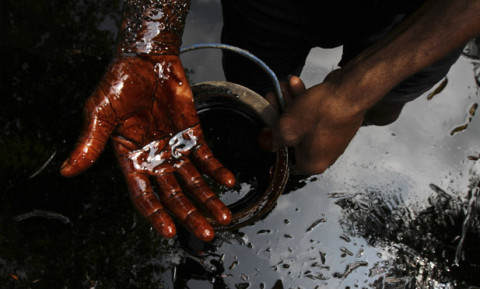Shell To Compensate Bodo Community Oil Spill Victims With N15 Billion
Business News, Latest Headlines Wednesday, January 7th, 2015
Collins Amadi, Port Harcourt – The Nigerian oil giant – Shell Petroleum Development Company of Nigeria Limited (SPDC) has agreed to pay a £55 million (about N15.3billion) compensation to the Bodo community, Rivers State, South South Nigeria, over two oil spill incidents in the area in 2008.
In a release Wednesday by its Spokesperson, Precious Okolobo, Shell indicated that the decision to pay the compensation – the largest in Nigeria’s recent history, was arrived at, following a settlement meeting with the affected community.
Okolobo revealed that the £55 million settlement would take care of payment of £35 million to individual claimants who would accept the settlement agreement in compensation for losses suffered from the “highly regrettable operational spills in the area.”
He said the remaining £20 million payment would be made for the benefit of the Bodo community generally.
On his part, the Managing Director of the company, Mutiu Sunmonu indicated, “From the outset, we’ve accepted responsibility for the two deeply regrettable operational spills in Bodo”.
“We’ve always wanted to compensate the community fairly and we are pleased to have reached agreement” added Sunmonu.
Sunmonu bemoaned the negative impact of sabotage of oil facilities in the Niger Delta region, pointing out that unless real action was taken to end the problem and the scourge of oil theft as well as illegal refining, environmental pollution would remain the real tragedy in the region.
According to him, the problem was allowed to continue, areas and communities that were cleaned up would be impacted again through these illegal activities by vandals.
He promised the SPDC has continued to make efforts to educate the people on the issue, while raining awareness with the federal government, international bodies, like the United Nations, the media, civil society and international non-governmental organisations, NGOs, on the negative impacts of the problem.
Related Posts
Short URL: https://www.africanexaminer.com/?p=21379






















